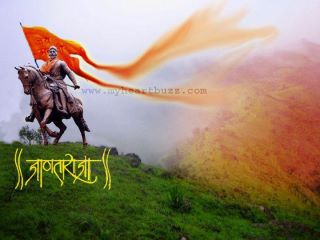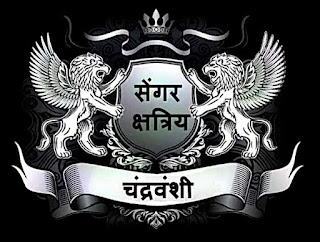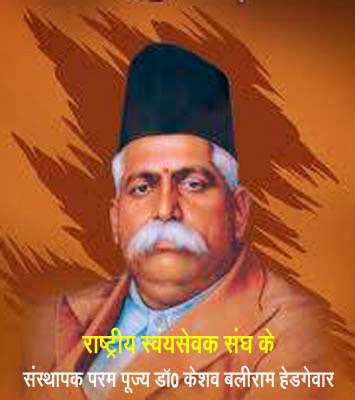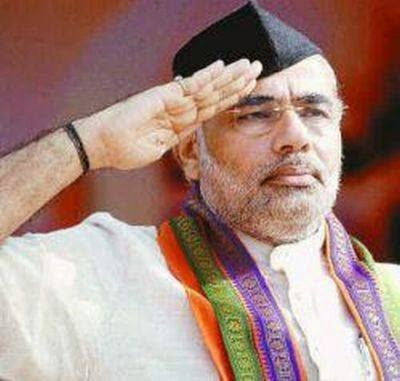Note on Article 370 : Jammu Kashmir Study Center
Note on Article
370
( Jammu Kashmir
Study Center)
Omar Abdullah
Tweet- “ Mark my
words & save this tweet - long after Modi Govt is a distant memory either
J&K won't be part of India or Art 370 will still exist.”
Comments - The Statements given by Omar
Abdullah and Mehbooba are anti National and an insult to the Union Constitution
and its makers. The authors of Constitution of India have kept Article 370 as a
Temporary Provision. Even Title of the Article is written in the Union
Constitution of India – “ Temporary provisions with
respect to the State of Jammu and Kashmir” Even during
the debate on Draft Article 306A (which was renumbered as 370 in original
Constitution), Goapala Swami Ayyahngar have clearly stated that the Article 370
is not a permanent feature. So, if one will go by tweet of the Hon’ble Chief
Minister of the State of Jammu Kashmir – Did Constitution Makers want to break
this country by declaring the Article 370 as Temporary Article?
Debate of
Constituent Assembly on Article 370 made it clear that Constituent Assembly was
not being formed due to the conditions in the State. While speaking in the Constituent Assembly Gopala
Swamy Aiyyanger said “The States have been
integrated with the federal Republic in such a manner that they do not have to
accede or execute a document of Accession for the purpose of becoming units of
the Republic, but they are mentioned in the Constitution itself; and, in the case
of practically all States other than the State of Jammu and Kashmir , their
constitutions also have been embodied in the Constitution for the whole of
India….” . From this it emerges that
many Princes had in total agreed at the first instance itself to go with the
Union Constitution and accept a common plan that Union Constitution may contain
for all such states.
Member of Constituent Assembly resisted and asked why such discrimination? In
response Gopala Swamy Aiyyanger further stated that “There has been
a war going on within the limits of Jammu and Kashmir State. There was a cease
fire agreed to at the beginning of this year and that cease-fire is still on.
Part of the State is still in the hands of rebels and enemy. We are entangled
in the United Nation. The legislature which is known as Praja Sabha in the
State is dead, neither that legislature nor a constituent assembly can be
convoke or can function until complete peace comes to prevail. Till a
constituent Assembly comes into being, only an interim arrangement is possible
and not an arrangement which could at once be brought into line with the
arrangements that exists in the case of the other States…”
Though the reasons extended by Gopala Swamy Aiyyanger clearly stated that
Article 370 was merely a timely procedural mechanism for completing the process as was done for
other states i.e (i) performing as
regards the subjects lying within the Jurisdiction of the Parliament of India /
Union Government and (ii) also enable the State to take
decisions for offering the subjects to
Union for extending the jurisdiction of Union Government / Parliament
of India over such subjects that may
otherwise fall in the ‘State list’ in
terms of the accession documents
In response Gopala Swamy
Aiyyanger further stated that
“There has been a war going on within the limits
of Jammu and Kashmir State. There was a cease fire agreed to at the beginning
of this year and that cease-fire is still on. Part of the State is still in the
hands of rebels and enemy. We are entangled in the United Nation. The
legislature which is known as Praja Sabha in the State is dead, neither that
legislature nor a constituent assembly can be convoke or can function until
complete peace comes to prevail. Till a constituent Assembly comes into being,
only an interim arrangement is possible and not an arrangement which could at
once be brought into line with the arrangements that exists in the case of the
other States…”
Statement
of the Goapalswami Ayyangar in the constituent Assembly
“We have said Article 211A will not apply to the Jammu and Kashmir State.
But this cannot be a permanent feature of the Constitution of the State, and hope
it will not be. so the provision is made that with the Constituent Assembly of
the State has met and taken its decision both on the Constitution for the State
and on the range of federal jurisdiction over the State, the President may on
recommendation of that Constitution Assembly issue an order that this Article
306A shall either cease to be operative, or shall be operative only subject to
such exceptions and modifications as may be specified by him”
The Statements make it very clear that functions were over
or the State Constituent Assembly is convened and had performed all the
required tasks, Article 370 was to be abrogated/ repealed. Like it
happened with many Articles of the Constitution.
With
the proclamation of 25th November, 1949, the Constitution of India
was made applicable to the State of Jammu and Kashmir.
Further Mr. Omar Bdullah and Mehbooba Mufti should read the Article
1 of the Constitution of India and Preamble, Section 3 and 147 of the State
Constitution.
(a) Article (1) of
Constitution of India has no reference of Article
370 while defining the territories / States of India.
(b). Preamble ( Jammu Kashmir Constitution) -We, the people of the State of Jammu and Kashmir, having
solemnly resolved, in the presence of the accession of this State of India,
which took place on 26th day of October, 1947, to further define the
existing relationship of the State with the Union of India as an integral part
of India as an integral part thereof, and to secure to ourselves:- ……
As per the Preamble of the State Constitution, Accession had taken
place on 26th October and the State Constitution has further defined
the relationship of the State with the Union. Article 370 has not been
mentioned there. So connecting Article 370 with Accession is baseless and an
attempt to avoid the negative impact Article 370 on the people of the State.
(C) Section- 3 of J&K
Constitution too
lays down that J&K is and shall
remain integral part of India.( Section-3 JK constitution : Relationship of the
State with the Union of India:-The State of Jammu and Kashmir is and shall be
an integral part of the Union of India).
In case Article 370 is abrogated, even then
Article-1 of Indian Constitution stays, the Constitution of J&K Stays and
hence stays Section-3 of J&K Constitution (Relationship of the State with
the Union of India:-The State of Jammu and Kashmir is and shall be an integral
part of the Union of India).
J&K Assembly cannot amend Section-3 of
J&K Constitution as has been clearly laid in Section-147 of J&K
Constitution.
The problem
started with illegitimate Delhi agreement between Nehru and Sheikh Abdullah.
In 1952 Nehru succumbed to the illegitimate wishes of Sheikh and makes an
agreement with Sheikh. The agreement was fraud with the nation, even the
Parliament of the Country was not taken into confidence before the agreement.
Both, Nehru and Sheikh were not the authorised entities to make such Agreement.
Only Parliament of India and Maharaja Hari were the legal and authorised entities
to conclude such agreements. But both were not involved in the process.
The images of
the Nehru- Sheikh Delhi Agreement 1952 did reflect in the Constitution
(Application to Jammu and Kashmir) Order 1954 of 14 May 1954 of President. The
Constitutional Order of 1954 issued by President was in a way an
unconstitutional order issued by the President under the cover of Art-370 of Constitution
of India that had gone to the extent of even amending the Constitution of India
where as no such authority could drawn by President from Art-370 of COI. The
order limits powers of Parliament also. The Constitution Application order of
May, 1954 is a political fraud under the cover of Article 370 with people of
State and Union.
Mehbooba
and Omar raising questions over the Accession of the State.
On 26th
October Maharaja Hari Singh construed the Accession and signified by Lord
Mountbatton on 27th. It was full and Final and not conditional.
Article came into existence came into existence on 26th November,
1950. Removal of Article 370 will have no impact on Accession. Even if any
changes were to be made in the Accession, that can’t be done without the
consent of Maharaja as mentioned in the Clause 5 of the Accession.
Clause-5: The terms of this Instrument
of Accession shall not be varied by any amendment of the Act or the Indian
Independence Act, 1947, unless such amendment is accepted by me by Instrument
supplementary to this Instrument.
Earlier Sh Narender Modi and
now Dr. Jitendra Singh, have made statements that a debates should be initiated
if the Article 370 have benefitted the people of the State of not ? Instead of
participating in the debate, Omar and Mehbooba both have tried to raise
irrelevant issues. As discussion brings out the misdeeds of the leaders of
Jammu Kashmir. They got exposed on the issues i.e. discrimination against
women, ST, OBC Reservations, Human Rights Violations of West Pak refugees, POJK
Displaced, Chamb displaced and terrorism affected people of Jammu regions. As
far as Article 3760 is concerned, subjects of the Jammu and Kashmir have given
their mandate. Omar is failed to tell the country why Prevention of corruption
act, 1989, Right to Education, political reservation to ST's of the State and 73rd
and 74th amendment to Constitution of India are not implemented in the State.
National Conference has
secured only 10 % votes and on 4th position in the State after BJP,
PDP, and Congress.
.









I really enjoyed your blog Thanks for sharing such an informative post.
जवाब देंहटाएंhttps://www.login4ites.com/